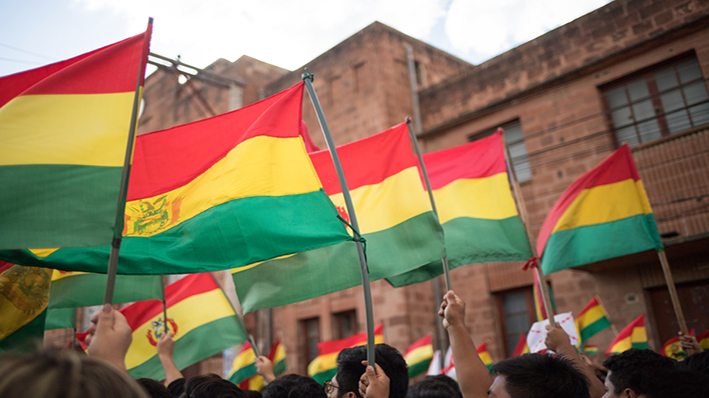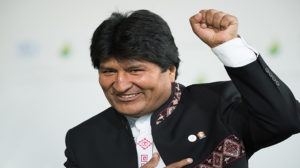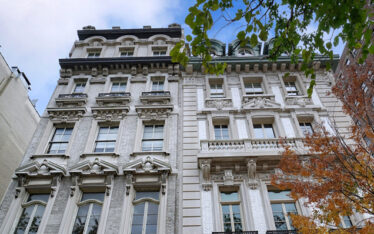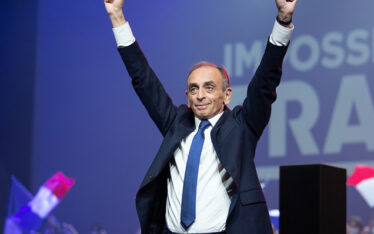
DevinBeaulieu/Shutterstock.com
Bolivia is one of the few South American countries that has retained its indigenous population and remains majority-indigenous to this day. While its cities are heterogeneous, rural Bolivia is primarily inhabited by indigenous Bolivians.
INDIGENOUS VOICES
Evo Morales, former civil rights activist, is Bolivia’s first indigenous president. First elected in 2005, he has led a massive economic transformation since his first term. Morales’s economic policies are socialist/social democratic and anti-imperialist and include most notably the increased taxation of the hydrocarbon industry and the nationalization of the natural gas industry in 2006. The money collected from these policies has been used for social spending, helping the people of Bolivia.
Under his leadership, Bolivia has seen a 42% reduction in poverty, a 60% reduction in extreme poverty, and a reduction in illiteracy), and is South America’s fastest-growing economy, experiencing a 4-6% increase in GDP growth.
Due to his indigenous background and successful socialist policies, Evo Morales is very popular. 5 out of 6 polls, before the October 20 presidential election, predicted that Morales would win his fourth term.
PERMISSION TO RUN
Initially barred from running for another term by term limits, Morales sought a referendum to abolish term limits, but it was narrowly defeated. However, the Supreme Court of Bolivia ruled that term limits were unconstitutional, so he was permitted in a controversial decision to run again. Morales, accused of being an authoritarian dictator by his political opponents, who started riling up opposition to him.
Come Election Day, Morales’s main rival was Carlos Mesa, a right-wing multi-millionaire businessman.
RESULTS QUESTIONED
With 95.63% of October 20 votes counted, the authority reported Morales holding a lead of 46.86% to Mesa’s 36.72% – slightly over 10 percentage points. With this, however, all hell broke loose. Morales, already accused of being dictatorial, immediately was accused of fraud.
At this point, the Organization of American States (OAS) released a statement that the jump for Morales was impossible. It was an “inexplicable change in trend that drastically modifies the fate of the election,” which was repeated in a later report.
This can be readily explained because results from rural areas –which have always been favorable to Morales– were reported later due to difficult access to these regions. This quick count trend matches very well with the eventual official count as well as the results from the legislative elections.
1st ROUND MORALES

F.Legrand-COMEO/Shutterstock.com
Eventually, the official count was released. Morales won in the first round 47.08% to 36.51% with 5 out of 6 polls predicting this outcome and there being no motivation for Morales to have committed any electoral fraud.
Unfortunately, the damage was done. The atmosphere of distrust of Morales, by the electoral authorities and the process itself, was set into play.
In response, a protest by Morales’ opposition began. They quickly began terrorizing Morales supporters in the streets. Protests turned violent and bloody.
Confident the election was clean and that he had won fairly, Morales agreed to abide by OAS an audit of the election. Mesa, however, did not abide by the audit, most likely because he knew he had lost but was trying to wrest power from Morales in any way possible.
OAS OVERSIGHT
The OAS, not always the neutral, independent body it should be, had overturned an election in Haiti. It seemingly scrutinizes left-leaning countries while turning a blind eye to right-wing regimes – for example: OAS supports Sebastián Pinera, right-wing president of Chile. Currently, Chileans are protesting Pinera’s punitive right-wing economic policies. While in Haiti, they discounted 234 legitimate tally sheets and added up the other 11 thousand to change the outcome of an election. Haitians are protesting their government at the moment as well…
The OAS also may have been pressured by the United States to act in non-neutral ways. For example, Senator Marco Rubio (R-Florida) suspiciously tweeted about “election fraud” before any results had started to come in. Additionally, the OAS receives most of its funding from the United States, creating a conflict of interest that favors the US agenda.
ELECTION AUDIT
The OAS, not always the neutral, independent body it should be, had overturned an election in Haiti. It seemingly scrutinizes left-leaning countries while turning a blind eye to right-wing regimes – for example: OAS supports Sebastián Pinera, right-wing president of Chile. Currently, Chileans are protesting Pinera’s punitive right-wing economic policies. While in Haiti, they discounted 234 legitimate tally sheets and added up the other 11 thousand to change the outcome of an election. Haitians are protesting their government at the moment as well…
The OAS also may have been pressured by the United States to act in non-neutral ways. For example, Senator Marco Rubio (R-Florida) suspiciously tweeted about “election fraud” before any results had started to come in. Additionally, the OAS receives most of its funding from the United States, creating a conflict of interest that favors the US agenda
IT CONTRACTORS
The audit also relies on arguments from IT contractors to the electoral authority. These contractors are concerned about vulnerabilities in the quick count system but are unable to provide evidence they were exploited in any nefarious way.
Moving to the official count, the OAS claims the chain-of-custody was broken for the voting sheets (in part because opposition protesters burned electoral buildings), and that there appear to be some irregularities in some of the sheets.
In addition, there are safeguards in the Bolivian system. Observers watched the tallying of votes in public, including representatives from Mesa’s party.
EXTREMIST CLASHES
The OAS audit was unable to prove that the election was manipulated in favor of Morales. But it further emboldened the opposition, which threatened the lives of those in Morales’s party. There are reports of relatives being kidnapped to force resignations of politicians. Morales’s house was ransacked. Socialist politicians across Bolivia report attacks by right-wing mobs.
Among the “coup” “leaders” is Luis Fernando Camacho is an ultra-conservative Christian fundamentalist with a base in Bolivia’s wealthy separatist region of Santa Cruz. His family owns Sergas, the company that distributed natural gas until Morales nationalized the industry.
MORALES RESIGNS
Morales, having to abide by the OAS audit, endorsed a new election. But he was forced to resign November 10 after senior army and police chiefs called on him to do so.
“I decided to resign from my position so that Carlos Mesa and Luis Camacho stop abusing and harming thousands of brothers … I have the obligation to seek peace and it hurts a lot that we face Bolivians, for this reason, I will submit my letter of resignation,” Morales said in a press release. Bolivian Vice President Alvaro Garcia Linera also resigned from his position.
ÁÑEZ INTERIM PREZ
On November 12, opposition Senator Jeanine Áñez proclaimed herself president without quorum in parliament, rather only a minimum presence of deputies, all from the opposition. Lawmakers from Morales’ party Movement to Socialism (MAS) despite holding a majority of seats could not attend because of a lack of a guarantee for their personal safety.
CLASHES CONTINUE
Violence in the country has continued by radical opposition groups that have burned symbols of the indigenous population. Meanwhile, in La Paz, thousands of supporters of Evo Morales are being mobilized in rejection of the coup d’état and its discriminatory acts.
About the Article
If only indigenous people and Christians could learn to get along.



